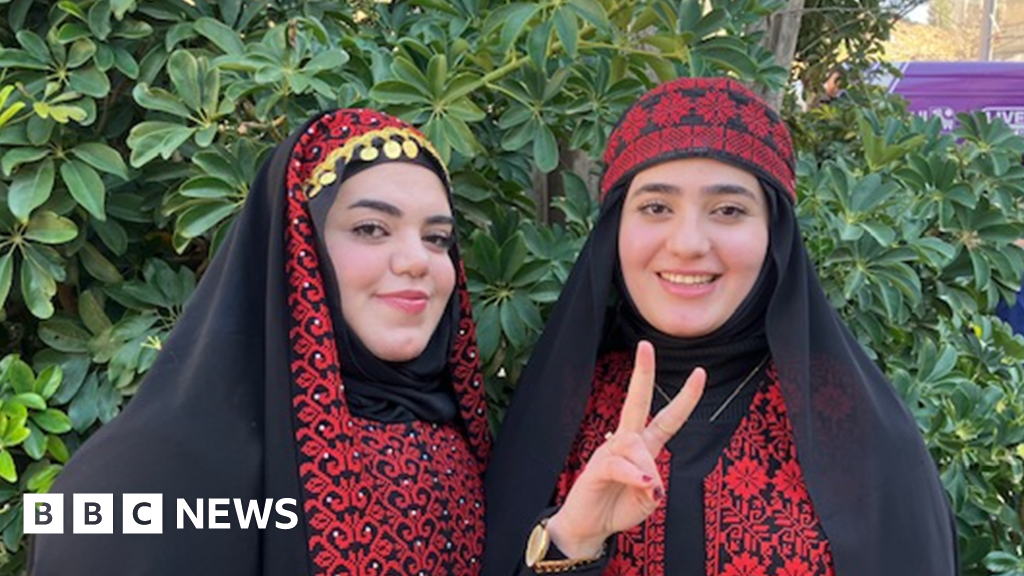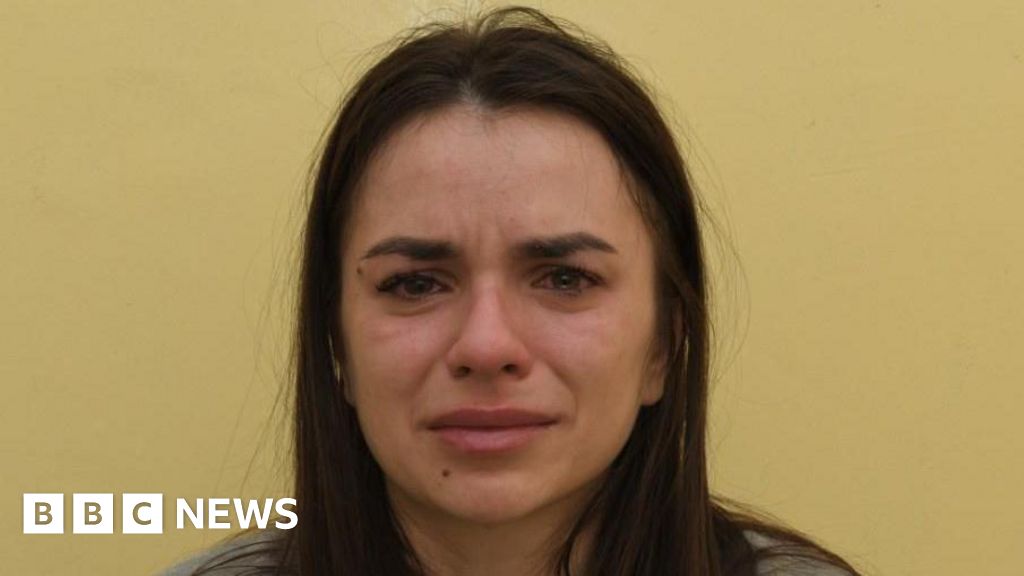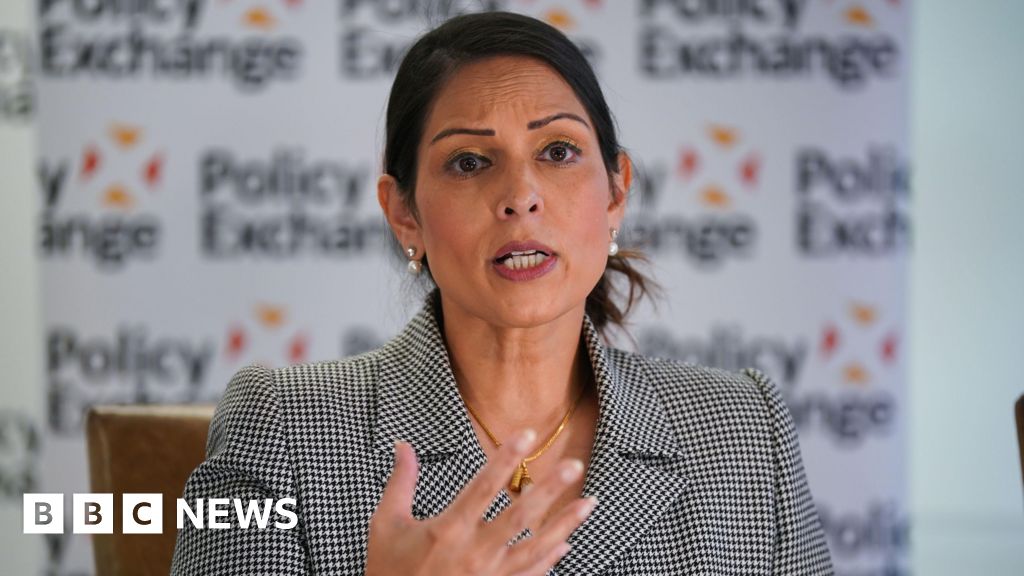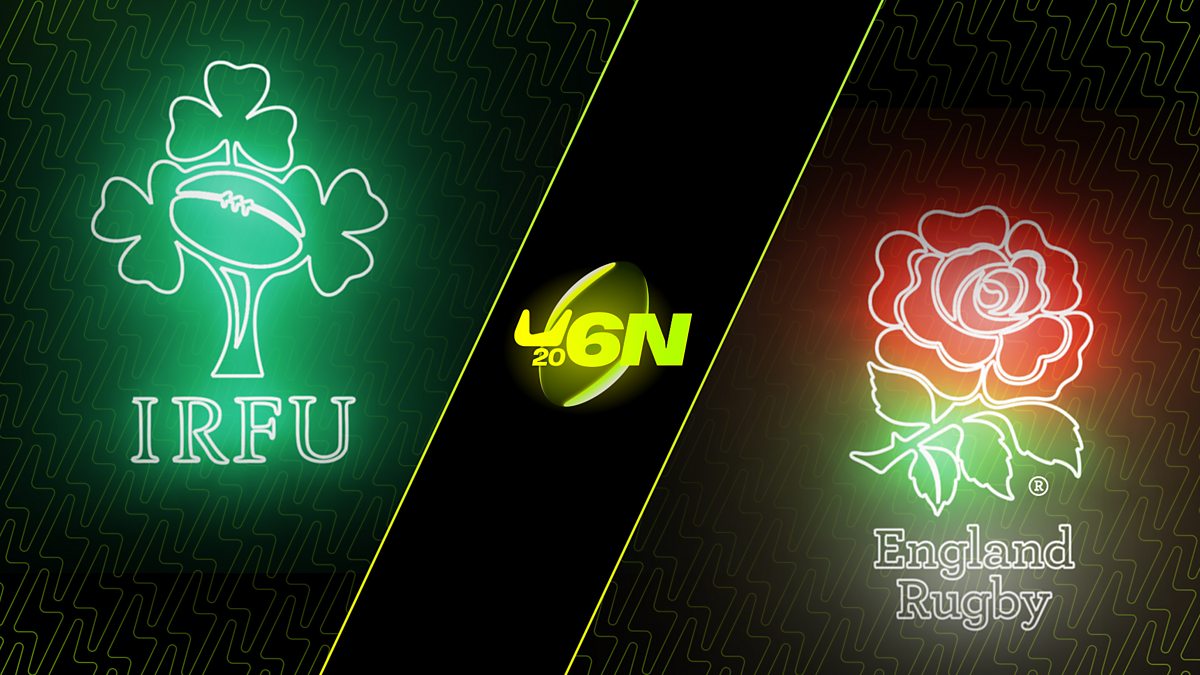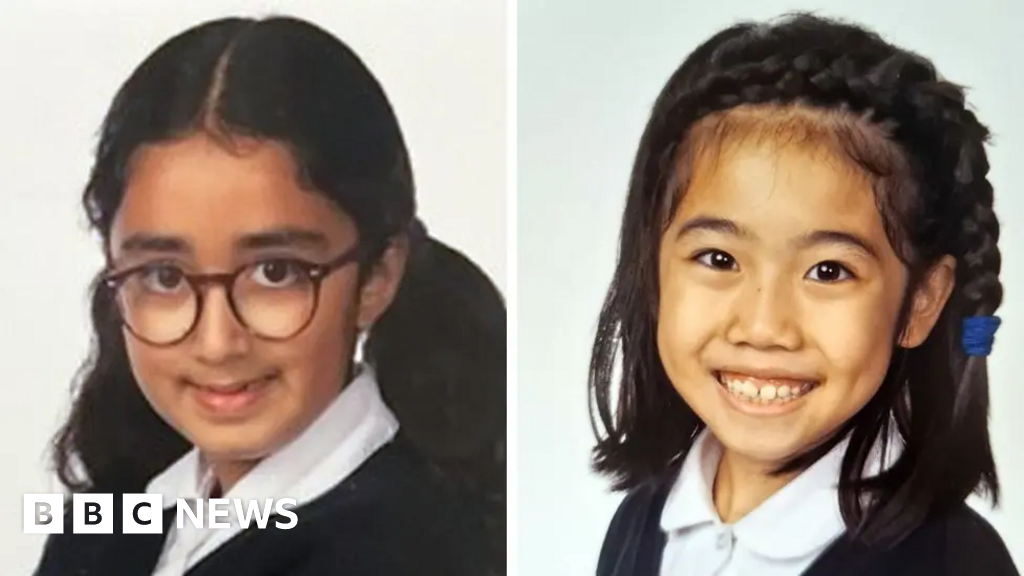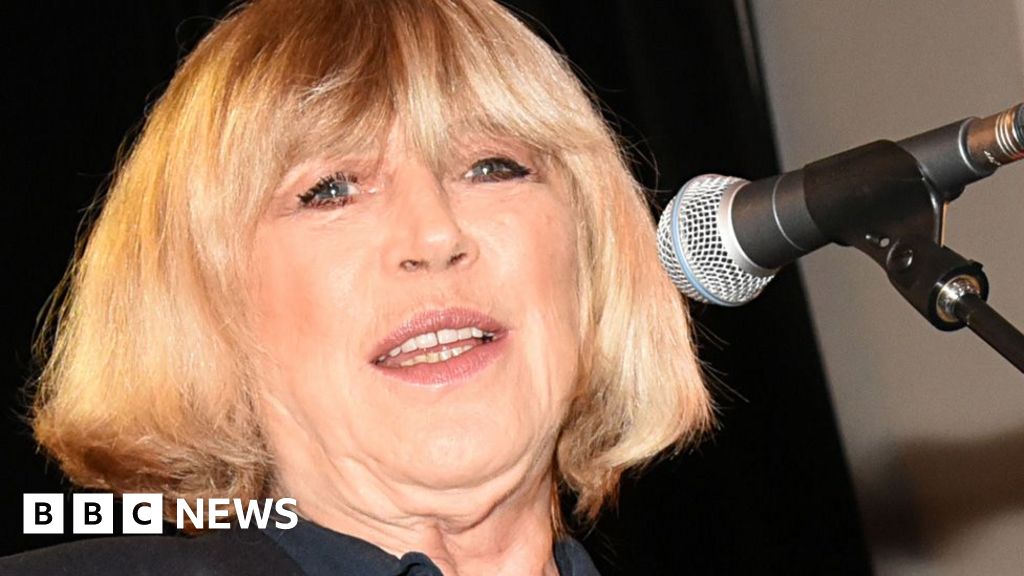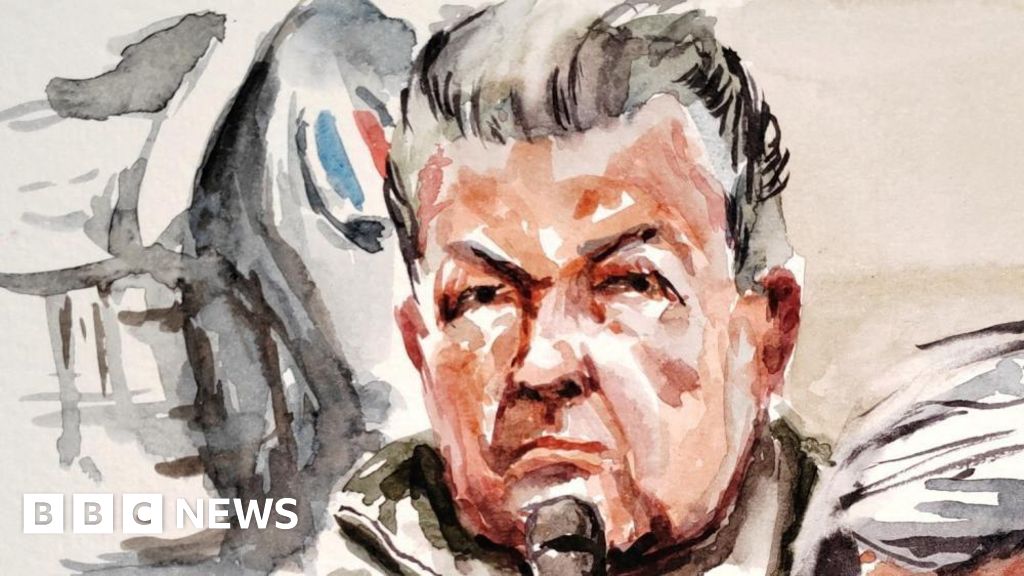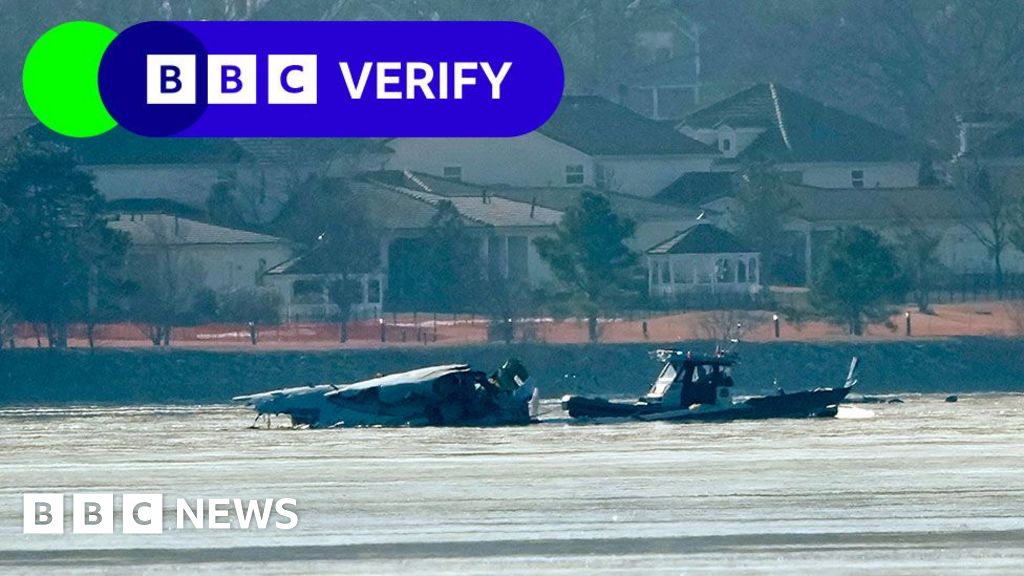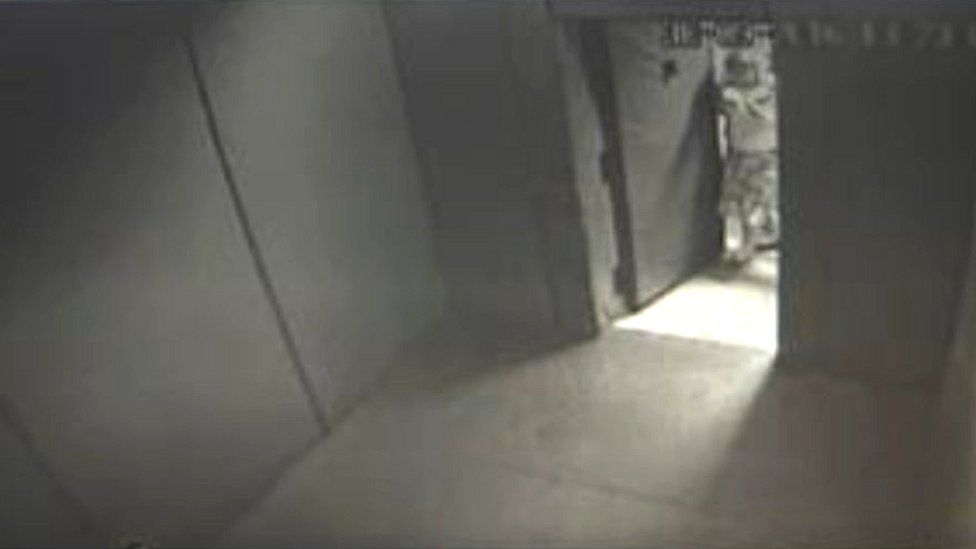
Whitefield's calming rooms were bare, lacking natural light and ventilation and could not be opened from the inside
By Noel Titheradge & Annabel Deas
Investigations correspondent & File on 4 producer
Staff were filmed hitting and kicking pupils at a special school and leaving them in their urine, the BBC has found.
Despite the school proving abuse in so-called "calming rooms", some staff are still employed there and have not been barred from working with children.
Parents say they have not been allowed to see the footage and were misled about the use of isolation.
Whitefield School said it acted in pupils' best interests and was not obliged to make barring referrals.
In 2021, a sealed box containing 44 memory sticks of CCTV footage from inside three of the rooms was discovered by new leadership at the school in Walthamstow, north-east London. It is one of the UK's largest special schools with about 370 pupils.
The BBC then revealed a joint Metropolitan Police and local authority investigation had been launched into "organised abuse" by staff between 2014 and 2017 - when the rooms were closed.
Now, we have obtained confidential school investigations written by an HR consultant it employed to review the footage and staff conduct.
These reveal appalling abuse and neglect affecting 39 pupils, many who are not able to speak.
Six staff were proven to have abused children on the balance of probabilities but were not sacked - and at least one referral to the Disclosure and Barring Service (DBS) was recommended but not made.
From leaked school and council reports, information requests, and interviews with current and former employees, our investigation can reveal:
- Pupils were left alone in the rooms for up to four hours, with footage showing them naked, sitting in urine and eating crumbs off the floor
- Children were "slammed", kicked and hit with force "without obvious justification", while rhino pads - often used in rugby training - were deployed to push pupils inside
- The HR consultant identified more than 20 CCTV clips of excessive force and records of police notes described possible assaults - but despite this the Crown Prosecution Service did not recommend prosecutions
- A whistleblower who worked at the school describes what they saw on CCTV as "torture" - and says the rooms were worse than cells
The whistleblower approached the BBC because they believe the school's investigations had amounted to a "whitewash".
"You've ended up with staff with no sanctions against them, no learning or awareness, no serious case review to look at what went wrong," they said.
The Children's Commissioner for England says the BBC's findings are "horrifying" and rules on seclusion should be tightened.
"There is no place for any of that behaviour and it needs to stop," Dame Rachel de Souza says.
In 2021, CCTV footage of children being abused was discovered at a special school. But staff caught hitting and kicking children were not sacked or referred to the barring service.
The BBC has spoken to nine of the 39 affected families who say they are still being denied answers. We have also seen evidence that one family has been misled by the police.
Many special schools use spaces outside of classrooms to address sensory needs or aggressive behaviour. But children were locked alone in Whitefield's calming rooms, which were bare and without natural light. One was a former stationary cupboard.
Government guidance states that seclusion should only be used for an "appropriate" amount of time - but Dame de Souza believes these rules were "really stretched" at Whitefield.
The Gloria family say their son's life has been "destroyed" by his placement in the school's calming rooms
One of those put in the rooms was David Gloria, now 20, who has diagnoses of autism, ADHD and OCD.
Despite school records of his placement, he does not feature in any of the 500 hours of footage handed to the police - highlighting the scale of seclusion at the school.
His father, Ricardo, says he asked about the use of the calming rooms when David started being placed in them and was wrongly told that staff always remained with pupils.
David soon began coming home distressed, leading his dad to grow suspicious. So Ricardo demanded to see the rooms and records of the times his son was put there.
The BBC has seen one observation report of a three-hour placement.
In it, David is clearly upset, recorded crying on 38 separate occasions over the period, asking to leave throughout. He is also observed saying he is "confused" and "does not understand" why he is there.
Significant self-injury is recorded - the boy slaps and punches his head, hits his stomach and throws himself into the wall. After two hours, David is twice observed urinating but is not allowed to leave.
After about three hours, the staff member records he would now be returned to his classroom to "recover".
Education consultant Elizabeth Swan told the BBC the report alone warranted a voluntary DBS referral against staff monitoring David.
His father Ricardo, a police officer, visited the room and said it was worse than a prison cell. He spotted a CCTV camera inside and demanded staff show him one of the videos.
Ricardo says the footage shocked him. He says it begins with David being "assaulted" by staff who put a knee in his back and pushed him inside the room - force which is not recorded in the written observation. He was then neglected.
"My son was in a panicked state and crying and self harming, begging them for water and food and they just ignored him - it's torture," Ricardo said.
Sophie says her son Ashley's experience at Whitefield has led to him jumping out of moving cars and running into freezing lakes
The boy who appears in more of the original CCTV footage than any other - over 55 hours - is Ashley. He was 12 at the time.
His family says his time in the calming rooms led to him being sectioned in 2020 - his escalating behaviour included him recently jumping out of a moving car.
Ashley is now 22. His mother says his anxiety has become so heightened he rubs his head on the floor so aggressively he has big sores from carpet burns.
"It's so unbelievable that you could keep a human being in a room the size of a cupboard and expect them to be OK," Sophie says.
"I thought he was being placed into a sensory room with beanbags and nice colourful lights."
The leaked documents describe a staff member pinning him up against the wall of a room and hitting him with such force his body is recorded as "jolting" before he then becomes unsteady on his feet.
The external consultant found that the incident constituted proven physical abuse and said the teacher had shown no remorse or concern for Ashley's welfare when interviewed, suggesting a "potential absence of learning".
She concluded that the teacher should be dealt with under the school's disciplinary policy with a referral made to the DBS.
But the BBC has learned this was not made and they continue to teach at the school - a decision Elizabeth Swan describes as "unfathomable".
This staff member who appeared to strike Ashley was also not prosecuted, despite being interviewed by the police in relation to over 40 video clips of concern.
Amina says her brother Abdulahi suffered frequent unexplained "meltdowns" and regularly self-harmed after being placed in the rooms
The same teacher also fleetingly appears in footage visiting a child inside one of the rooms after the pupil had wet themselves and wiped their face, according to the documents.
The child later appears to pick crumbs off the floor and is finally dressed - without being cleaned - about 90 minutes after arriving. On a separate occasion, a non-speaking child is left sitting in urine.
Another mother, Halima, says the school only told her that her non-speaking son, Abdulahi, had been placed in the rooms on two occasions, but he appears in 11 videos passed to the police.
Separately, the Metropolitan Police has told the family about a single "stand-alone isolated" incident. But the BBC has learned of another occasion where he was repeatedly pushed - in what records of police notes described as a "possible assault" with him then having been left alone walking on his knees, crying.
The BBC's findings highlight how children have more rights in young offender institutions than in school seclusion, safeguarding expert Elizabeth Swan says. She says a youth custody regime with no external scrutiny had, in effect, been enabled at Whitefield.
Dame Rachel de Souza believes the significance of the failings means a referral should be considered to the national safeguarding board, which reviews cases for learning.
She says staff proven to have abused children should be sacked and that DBS referrals should be made when they have been advised.
If you are affected by any of the issues in this story you can find sources of support on BBC Action Line.
Flourish Learning Trust, which runs the school, told the BBC that a new leadership team had taken over after the calming rooms had been shut, shared the footage with the police and learned from the failings.
It said some staff had resigned since its investigations were completed but three who returned have received extensive training. It said it complied with employment law and the local authority, Waltham Forest, was content with its conduct.
Separately, one staff member was sacked by the Trust. But the Trust added it was not legally obligated to make DBS referrals for the six staff members who were not sacked despite its investigation findings proving they abused pupils. The school says this is because they were not removed from their roles - but had rather been suspended.
Government guidance says suspension qualifies as removing a staff member from a role. The DBS also told us the duty to refer staff is not altered by a decision to suspend them.
We asked Waltham Forest why it had not made the referrals itself, given the severity of the abuse proven by the consultant. It said it acted in accordance with requirements.
The BBC has also learned that the use of seclusion varies widely in England. Information requests received from 375 special schools revealed that 50 schools isolate pupils in rooms on occasion, typically involving monitoring of them through doors or windows, or on cameras. A handful said pupils can be locked in the rooms.
A government spokesperson described the abuse at Whitefield School as "abhorrent" and said its guidance on seclusion provided clarity on the difference between punitive and non-punitive use.
Parents have repeatedly requested footage of their children inside the rooms from the police and local authority investigation.
They say the Met Police has blocked its release and either told them it is too distressing or would breach privacy law.
The force says it is unable to comment while enquiries continue into non-Whitefield staff, understood to relate to other professionals who may have had knowledge of concerns.
Do you have more information about this story?
You can reach Noel directly and securely through encrypted messaging app Signal on: +44 7809 334720 or by email at noel.titheradge@bbc.co.uk

 9 months ago
48
9 months ago
48
